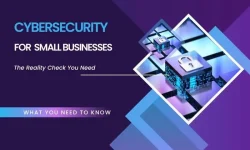Freelancing is one of the most preferred ways to make money these days. You can earn money by working from home in your own time as a freelancer. For more details, refer to this blog post.
Table of Contents
What’s Freelancing?
Freelancing involves contracting with corporations or people. No employer considers you a full-time employee. Instead, work with several clients or firms.
Freelancing is great. You select your own hours. Part-time or full-time, you can accept as many clients as you can.
Freelancers determine their own pricing. This might lead to better pay than regular work.
In simple terms, freelancing is when you use your skills, education, and experience to work with multiple clients and take on various assignments without committing to a single employer. The number of assignments or tasks that you can take just boils down to your ability to deliver on them as asked from them.
Who Is A Freelancer?
Self-employed freelancers provide services to various clientele. These skills-based services aren’t only for enterprises.
Freelancers utilize sites like Fiverr, 99designs, etc. to obtain business or leverage their network to attract clients directly.
What about a career? Can freelancers live lavishly? How to start freelancing?
When 11% of working adults in the US are full-time freelancers, there must be something to this sector.
Freelancing as a Job:
The emergence of freelancers created the gig economy. In the gig economy, a worker works for many customers on his own terms and at a price, he feels his labor justifies.
Freelancing is alluring. It solves most service-class difficulties. Upwork says Americans work 47 hours per week. Freelancers work 11 fewer hours each week than full-timers. 550 hours each year is 23 days.
Traditional full-time employees spend an extra month a year typing (or wherever they work).
How To Become A Freelancer?
As simple as shopping online, you may become a freelancer. You visit freelance sites and take employment. It’s also the best way for students to earn some extra cash. This is a great method to get your name out.
These sites provide freelance work:
Fiverr is the largest freelancing employment site. Simply establish an account, post what you can accomplish, and add a few links.
Designers may get freelance work at 99Designs.
Upwork: A more professional freelance marketplace with more business clients.
Freelancer.com: Freelancer.com is one of the oldest freelancing work marketplaces for those with little or no experience.
build your brand:
Before using freelance websites, build your brand. Here’s how:
1- Choose your services.
2- Choose your market.
3- Find your platforms (freelancing sites). Pick a consistent username for each. Brand identity is built.
4-Set pricing.
5-Create a niche-specific online portfolio on GitHub, Behance, etc. Create a portfolio website to show off your abilities.
6-Market your services: utilize social media, provide something for free (to get traction), ask for references, and use email marketing.
We don’t recommend leaving your job for freelancing. In the beginning, try it part-time to see how it goes.
You needn’t freelance full-time. You may do it full-time or keep your work and make extra money.
If you like where things are going, start freelancing.
Next Step:
Once you believe you can support yourself, take on various jobs for multiple money streams. This includes both personal and freelance work.
Full-time work is another option. Full-time freelancing requires many revenue streams:
– Monthly retainers
– Negotiate sales commissions
– Reward clients who suggest new business.
– Self-promotion.
Take Care Of Your Finances:
Most of the “money stuff” is handled by your employer. You get a monthly paycheck, taxes are deducted automatically, and your company typically handles insurance.
When you’re alone, you must do the following:
Getting your Paycheck:
This is the hardest part for veterans and newcomers alike. Negotiating and communicating with your client to collect payment on time is difficult. If you do this, you’ll perform well as a freelancer.
Taxes:
You must manage the complexity of your personal and professional taxes on your own.
Benefits from retirement and insurance:
You must research the finest insurance options and make your own retirement plans.
In summary:
Being a freelancer and working in the gig economy involves taking responsibility for your own money, including negotiating salary, acquiring insurance, and paying taxes. Freelancing is perfect if you value independence, freedom, and earning possibilities.
Find working freelance other ways:
Indeed helps you find freelance work online. Simply put “freelance” in front of the job title you’re looking for, then enter your location or state to uncover freelance possibilities near you. You may search by keywords, company, income, etc. You may filter by job posting date, remote opportunities, and more.
In conclusion:
Freelancing has pros and cons. You must determine if you’re willing to assume the associated danger. Freelancing offers freedom, but also instability and failure. Not good for your career. If you sacrifice your security for a more professional career, you may establish your brand and reputation and attain your ambitions.

![Earn money as a freelancer in [2023] ad-mania](https://yestobetop.com/wp-content/uploads/2022/06/Copy-of-Freelancer-Made-with-PosterMyWall_2__1__1_-1-1-1200x700.jpg)


